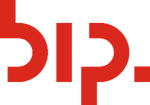Identify existing solutions
- Aim: identify and evaluate existing solutions that could address the challenges faced by RTSM.
- Objective: Use a combination of public data and methodologies to better understand the requirements of the RTSM solution and assess the suitability of global solutions for implementation in the GB gas network.
Basis of design for a modelling solution
- Aim: To create a robust and accurate design framework for a modelling solution that determines energy content for billing and settlement purposes in a multi-gas grid.
- Objective: Ensure that the proposed solution is technically feasible, economically viable, and complies with regulatory requirements.
Feasibility, integration roadmap, and trial planning
- Aim: To assess the feasibility of the proposed basis of design, plan the roadmap for integration across GB, and understand requirements for a trial.
- Objective: Evaluate how the solution can integrate with existing industry requirements (regulatory, technical, economic, operational, etc.) and develop a strategy for smooth implementation, minimising disruptions while focusing on key areas like design, deployment, and training.
Work Package 1: Market research
Work Package 1 (WP1) will be developed on our behalf by BIP.

A comprehensive market research study will be conducted to identify various solutions that have been developed globally for billing and settlement in multi-energy gas systems. Using these developed solutions as examples, the project seeks to understand how these solutions could be applied to help solve GBs challenge. Some key activities include:
- Collection of publicly available data, reports and engagement with industry stakeholders.
- Technical assessment of global solutions.
- Classification of options based on Key Performance Indicators.
- Ranking of options based on applicability to GB.
- Summary of recommendations to inform Work Package 2.
Work Package 2: Modelling solution
Work Package 2 (WP2) will be developed on our behalf by Correla.

The main aim of this part of the project will be to design a fit-for-purpose modelling solution that meets the requirements of GB gas consumers and existing stakeholders and effectively addresses the challenges with billing and settlement in a multi-gas system.
A key output of this work package will be the Basis of Design of the proposed solution. The Basis of Design will describe the required amendments in the market structures and connection frameworks, the basic architecture of new systems proposed, considering key essential provisions such as changes in regulation, and the interlink between solutions for a fluid and uncomplicated process for transition. Furthermore, this will encompass the identification of high-level dependencies and interactions with other industry systems to comprehensively address all implementation tasks.
Work Package 3: Feasibility study and roadmap
Work Package 3 (WP3) will be developed on our behalf by BIP.

This work package will conduct a comprehensive feasibility study that evaluates the viability of each proposed solution by assessing all factors critical to its success e.g., regulatory, technical, economic, scheduling, and operational aspects. This will facilitate the subsequent development of a comprehensive roadmap to inform the strategic implementation of the proposed solution across GB considering all key aspects and paving the way for successful implementation with the least disruption.
A report will detail all the information generated through the stages of ‘defining objectives and scope’ and ‘gathering of background information’ including background information about the gas industry, industry trends, regulatory environment, market dynamics, existing gas settlement practices, and key stakeholders along with the insights gathered into their needs and preferences. Additional information to be outlined in reports includes the factors considered in the feasibility study covering technical, economic, operational, legal, regulatory, and risk assessment, providing a comprehensive justification for their consideration and demonstrating how they contribute to the overall feasibility of the project.
All the key aspects of the solution implementation will be outlined in a comprehensive roadmap to provide a key reference for wider industry and to help inform the requirements for required changes.
Work Package 4: Rollout strategy
Work Package 4 (WP4) will be developed on our behalf by BIP.

Work Package 4 will develop a rollout strategy for a potential demonstration of the solution defined as the most feasible option in WP3. Demonstration will be undertaken in subsequent phases of the RTSM programme. Using the outputs of WP1, WP2 and WP3, the most effective approach to demonstrate the solution will be selected. The criteria used to design and evaluate the models in the preceding work packages will inform the key considerations in designing the rollout strategy and the demonstration will be designed to showcase how effectively the proposed solution addresses the challenges outlined by the selection criteria. Additionally, the assumptions and assessments made during the feasibility study in WP3 will be validated. Key considerations in the rollout strategy will include the following:
- Asset and infrastructure utilisation
- Site selection
- Risk mitigation
- Data requirements
- Gas supply
- Monitoring and validation
- Adherence to regulation/regulatory change
- Requirements
- Stakeholder communication
- Safety measures
- Alignment with government strategy and policy
- Cost estimation
- Customer engagement
Time will be allocated for stakeholder engagement with key industry stakeholders ensuring that all eligibility criteria for RTSM demonstration site(s) selection are thoroughly reviewed and endorsed by all relevant parties.
Work Package 5: Dissemination
Work Package 5 (WP5) will be developed on our behalf by both Correla and BIP.

The dissemination process will ensure that all project learnings are successfully shared with all key stakeholders. The partners will discuss the findings and results from all work packages to be tailored into a detailed technical account that describes the work's methods, analysis, and findings.

